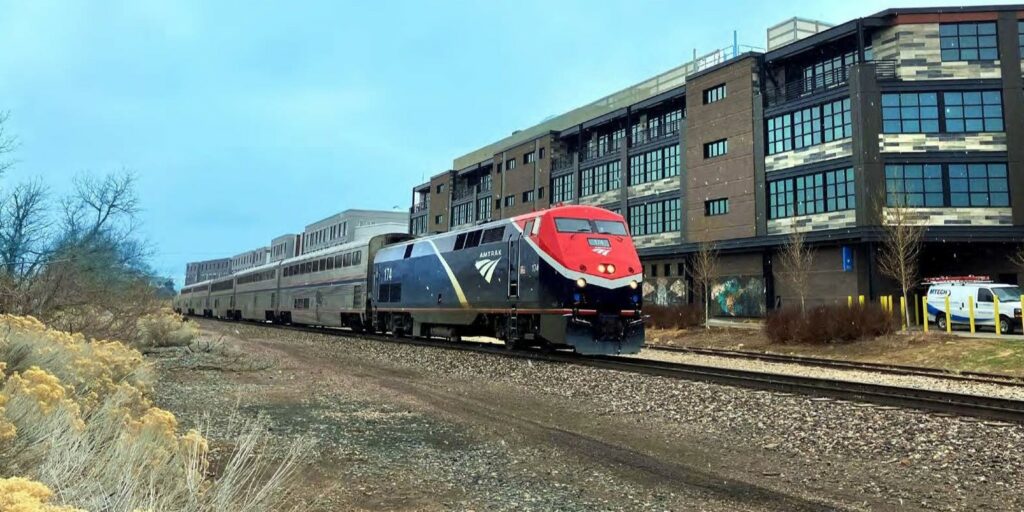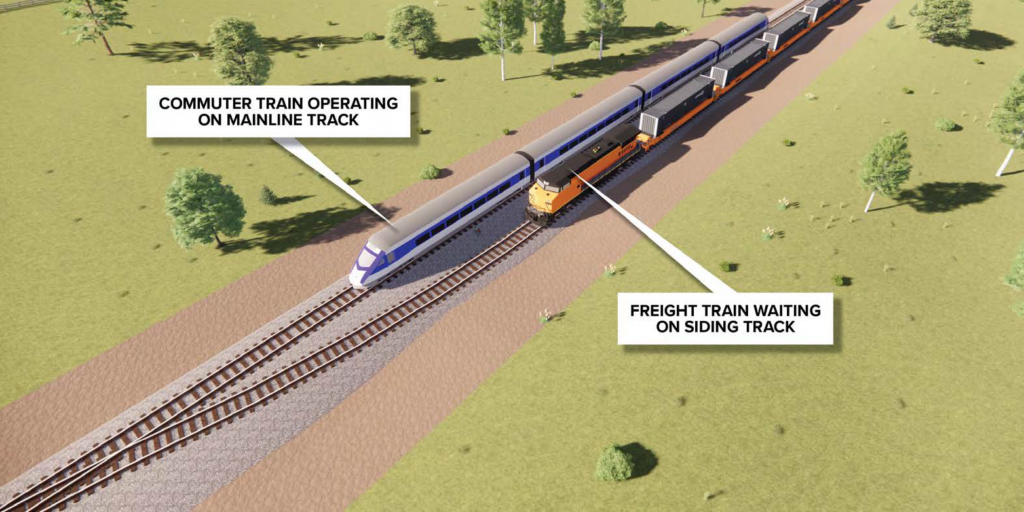GDT > Front Range Passenger Rail > FRPR Service Development Plan
Please visit the Front Range Passenger Rail Open House to learn about progress towards advancing FRPR, the recommended alternative for future full-build FRPR service in 2045 and near-term work to begin starter service by 2029. You will also have an opportunity to provide comments that help shape future planning decisions.
This online open house is open from May 12th – June 15th, 2025.
The Service Development Plan
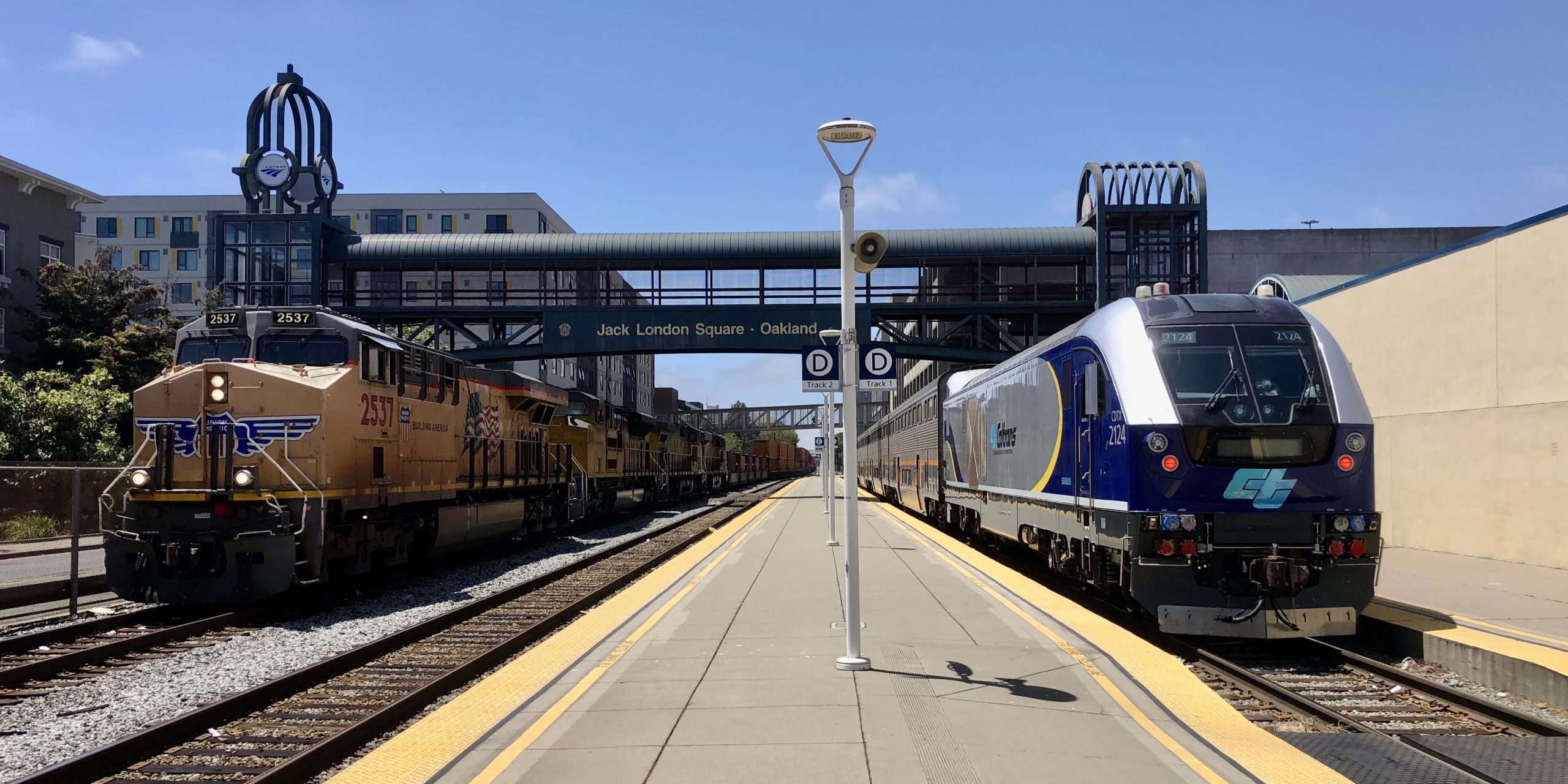
In July 2022, the Front Range Passenger Rail (FRPR) District awarded a contract to HNTB consultants to produce the Service Development Plan (SDP). The SDP will evaluate route, stations, service, infrastructure, operations, costs, and financing, and culminate in an implementation plan for initial train service. The SDP considers how to use existing rail infrastructure, leverage railroad and community partnerships plus multimodal connections to create a train service that will maximize ridership. The completed SDP will makes the project eligible for millions of dollars in federal funding, which will be crucial for completion.
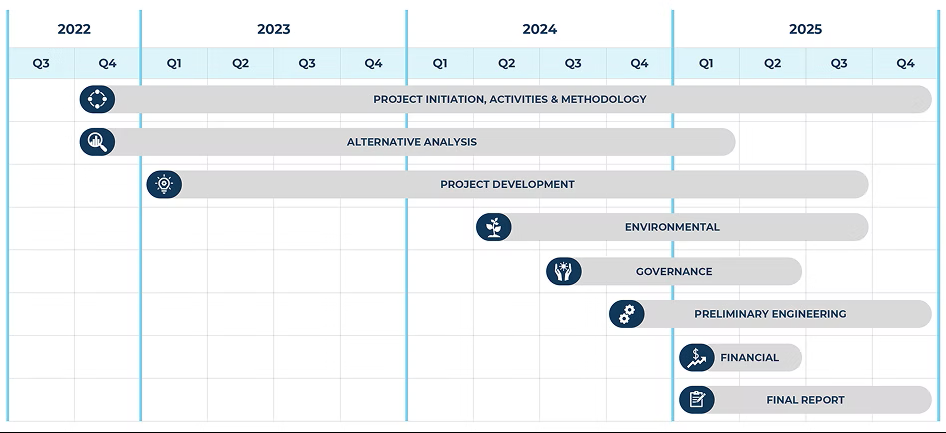
Purpose and Need
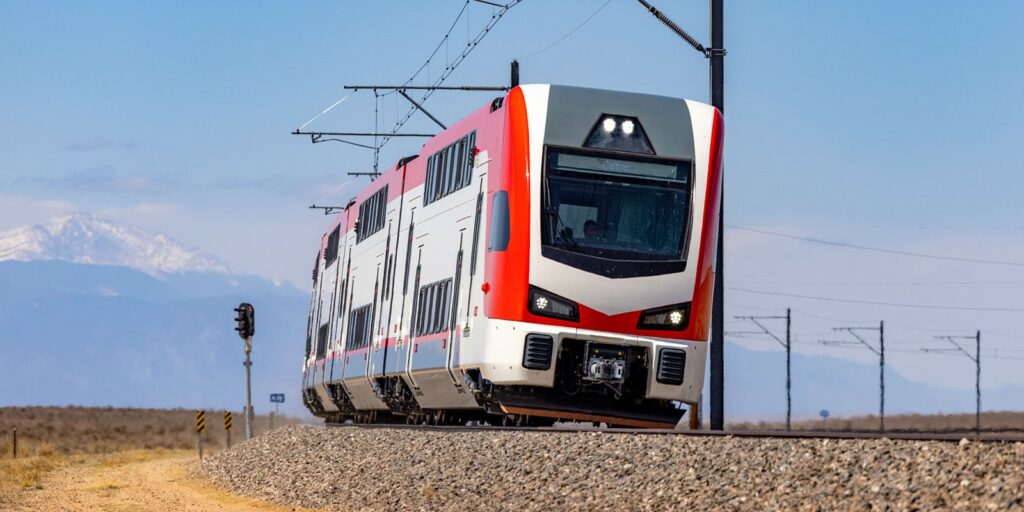
The FRPR Purpose and Need Memo sets out the whole reasoning behind the FRPR project and defines why it is worth doing.
The FRPR system would…
- Provide increased mobility choices for safe, efficient, and reliable travel along the Front Range now and in the future.
- Connect communities to jobs, retail, recreation, health care, leisure, education, entertainment, and other regional destinations.
- Foster economic vitality and improve transportation equity.
- Advance Federal, state, and community economic, environmental, and equity outcomes and capitalize on Federal objectives and funding to expand passenger rail infrastructure investments outside of the Northeast Corridor.
The FRPR project is needed to…
- Improve mobility and multimodal travel options ― Colorado needs integrated multimodal travel options to reduce traveler dependence on Single Occupancy Vehicles (SOVs), increase transportation system capacity, and serve regional travel demand.
- Connect communities ― Limited mobility choices exist along the Front Range that efficiently connect people to jobs, retail, recreation, health care, leisure, education, entertainment, and other regional destinations.
- Foster economic vitality and improve transportation equity ― an FRPR system would strengthen links among Front Range economies and increase options for residents and businesses to equitably access economic opportunities.
- Support environmental sustainability goals ― an FRPR system that enables increased non-SOV travel supports Colorado and Federal priorities and commitments to reduce the impacts of the transportation sector on the environment and climate. .
Route Selection
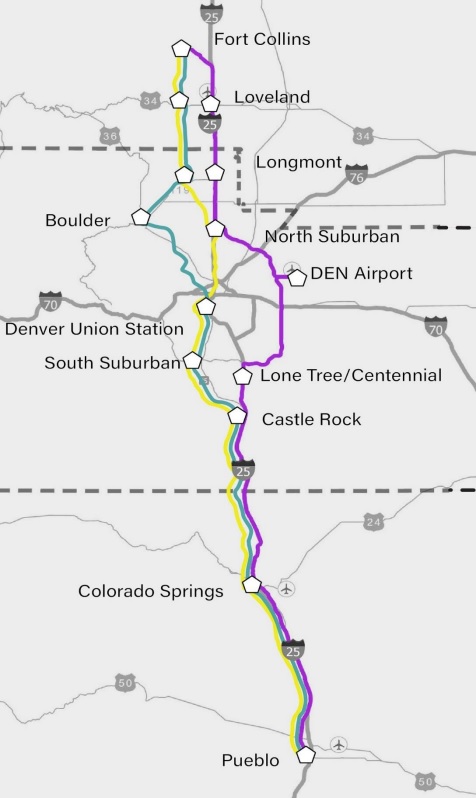
The FRPR Alternatives Evaluation Report, published in December 2020, selected three possible alternatives for the route. All three alternatives were recommended for further study:
BNSF Right-of-Way Alternative (Green):
Serves Longmont, Boulder, Denver Union Station and Littleton.
BNSF Right-of-Way + North I-25 EIS Commuter Rail Alternative (Yellow):
Serves Longmont, Denver Union Station and Littleton.
I-25 + E-470 Highway Alternative (Purple):
Serves Denver Airport, Centennial and development east of Denver.
In December 2023, the FRPR District announced the BNSF Right-of-Way Alternative (Green) had been selected as the preferred route for the project. This route shares tracks with RTD’s Northwest Rail project and it is expected, if not mandatory, that both parties work to gather to develop rail service on the Denver, Boulder and Longmont section.
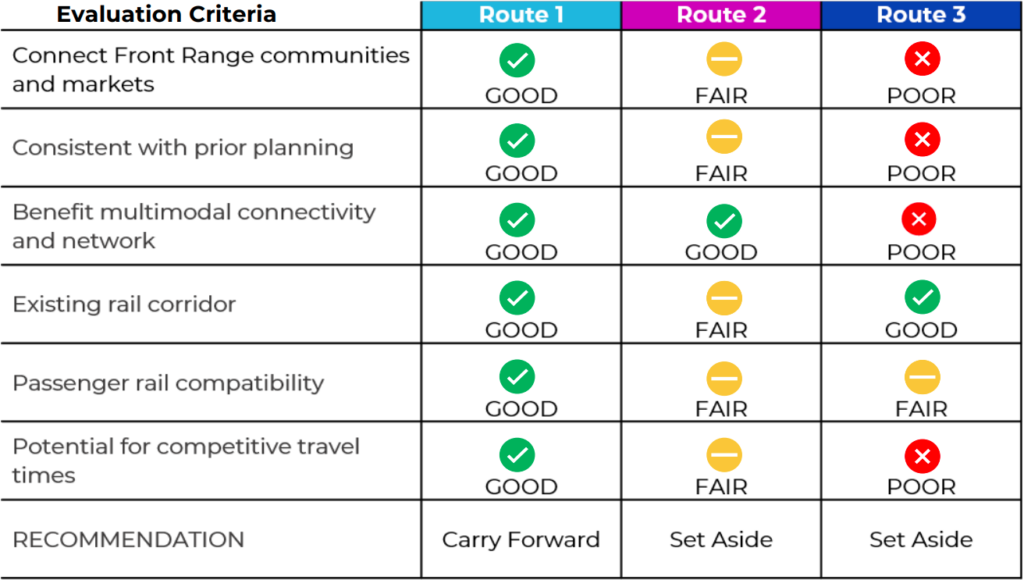
The FRPR Route Options Analysis studied the BNSF Right-of-Way Alternative (Green) as ‘Route 1’ in the table. However the two alternative routes (‘Route 2’ and ‘Route 3’) have differing alignments.
“GDT agrees with the decision to select the BNSF Right-of-Way Alternative (Green / ‘Route 1’) as it would provide the most value to passengers, community members and the State of Colorado”
Greater Denver Transit, December 2023
Preliminary Alternatives Analysis
The Preliminary (Service) Alternatives Analysis evaluates a range of potential FRPR service alternatives, assess their operational, environmental, and financial performance, and identify one alternative to carry forward to further develop in the SDP. The service alternatives are:
- Alternative 1: 6 roundtrips at 79 mph
- Alternative 2: 6 roundtrips at 90 mph
- Alternative 3: 10 roundtrips at 79 mph
- Alternative 4: 12 roundtrips at 79 mph
- Alternative 5: 12 roundtrips at 90 mph
79mph vs 90mph
Increasing line speed from 79 mph to 90 mph only resulted in a 5 minute (3hr 19mins vs 3hr 14mins) time savings and a less than 2 percent increase in ridership (14,000 for 6 roundtrips, 22,000 for 12 round trips) for an end-to-end run. It was concluded that speed is not a major factor so the 90mph alternatives 2 and 5 were therefore discarded.
79mph Infrastructure Comparison
| Alternative | Trains per Weekday (Round Trips) | North Segment Infrastructure Required | South Segment Infrastructure Required | Capital Investment |
| North Segment Joint Service | 3 | – | $880M | |
| Starter | 3 | |||
| 1 | 6 | – 4.4 miles of siding track MP 10.10 (Wadsworth Blvd) to 14.50 (Broomfield South) – 3.43 miles of siding track MP 33.25 (Jay Rd) to MP 36.68 (Mineral Rd) – 1x Single Cross Over MP 14.50 – Upgrade existing Broomfield siding track and turnouts – 5x Bridges widened / reconstructed MP 11.34, MP 11.44, and MP 11.84, MP 33.64 and MP 35.86 – 3x Grade crossings reconstructed MP 12.95, MP 14.00 and MP 14.45 – 3x Grade crossing closure evaluations MP 33.7 (55th St) and MP 35.29 (63rd St) – Extend multiple drainage culverts for additional track | – 1.5 miles of siding track MP 63.10 to MP 64.60 (Academy North) – 2.2 miles of siding track MP 66.10 (Academy South) to MP 68.30 – 2 miles of siding track MP 39.75 to MP 41.75 along BNSF Main 1 – 1x Universal Cross Over (UXO) MP 66.08 – Upgrade existing Academy siding track and turnouts – 2x Bridges widened / reconstructed MP 63.71 and MP 64.32 – 2x Grade crossings reconstructed MP 64.07 and MP 65.7 – 1x Private grade crossing reconstructed MP 41.5 | |
| 3 | 10 | – 5.92 miles of siding track MP 36.68 (Mineral Rd) to MP 42.60 (Longmont Station) – 2x UXO MP36.80 and MP 42.60 – 1x New bridge MP 40.3 – 10x Grade crossings reconstructed MP 36.68, MP 37.2, MP 37.86, MP 38.05, MP 39.17, MP 39.84, MP 40.65, MP 41.36, MP 42.17, and MP 42.53 – Widen box culvert for additional track MP 42.56 | – 5.2 miles of siding track MP 57.90 (Monument South) to MP 63.10 (Extended Academy North) – 1x UXO MP 57.90 – 4x Bridges widened / reconstructed MP 61.57, MP 60.42, MP 59.94 and MP 59.37 – 2x Grade crossings reconstructed MP 59.42 and MP 61.87 | |
| 4 | 12 | – 1.65 miles of siding track MP 31.60 (Boulder North) to MP 33.25 – 1x UXO MP 31.60 – 3x Bridges widened / reconstructed MP 31.85, MP 32.74, and MP 33.14 – 3x Grade crossings reconstructed MP 32.04, MP 32.33, and MP 33.25 | – 4.1 miles of siding track MP 68.30 (Extended Academy South) to MP 72.40 (Colorado Springs North) – 1x UXO MP 72.30 – 6x Bridges widened / reconstructed MP 68.31, MP 68.87, MP 69 MP 70.45, MP 70.48, and MP 71.48 – Modify pier protection at existing overpasses |
79mph Operations Comparison
| Alternative | Trains per Weekday (Round Trips) | Trains Required * | Ridership Forecast ** | Operating Expenses |
| North Segment Joint Service | 3 | $32.0M | ||
| Starter | 3 | |||
| 1 | 6 | 5 | 702k – 1.2M | $52.4M |
| 3 | 10 | 7 | 990k – 1.69M | $76.3M |
| 4 | 12 | 7 | 1.13M – 1.93M | $87.6M |
* Includes one spare train and one undergoing maintenance.
** Range is due to fares charged being from $0.19 / mile to $0.37 / mile, see page 30 of the FRPR Preliminary Alternatives Analysis.
What Can Customers Do With the Schedule Alternatives?
| Activity | North Segment Joint Service | Starter | Alternative 1 | Alternative 3 | Alternative 4 |
| 3 Trains per Weekday (Round Trips) | 3 Trains per Weekday (Round Trips) | 6 Trains per Weekday (Round Trips) | 10 Trains per Weekday (Round Trips) | 12 Trains per Weekday (Round Trips) | |
| Business | |||||
| Middle of the day meetings & appointments at all destinations (10am – 6pm) | X | X | X | ||
| Start work / attend an meeting at all destinations (9am) | X | X | |||
| Start work / attend an early meeting in Denver (8am) | X | X | X | ||
| Start work / attend an early meeting in Denver (7am) | X | X | |||
| Pleasure | |||||
| Shopping, lunch & daytime activities at all destinations (10am – 6pm) | X | X | X | ||
| Have dinner in Denver (6 – 9pm) | X | X | |||
| Have dinner at all destinations (6 – 9pm) | X | ||||
| Attend an evening event, sports game or concert in Denver (6 – 10pm) | X | ||||
| Denver Airport | |||||
| Catch a flight departing after 10:45am ** | X | X | X | ||
| Catch a flight departing after 9:15am ** | X | X | |||
| Arrive on a flight before 7:15pm *** | X | X | X | ||
| Arrive on a flight before 8:45pm *** | X |
* For schedule details, see pages 17-18, 20-21 and 23-24 of the FRPR Preliminary Alternatives Analysis.
** Assumes at least 2 hours from connecting A Line train arrival at Denver Airport to flight departure.
*** Assumes at least 1 hour from alight arrival at Denver Airport to connecting A Line train departure.
Conclusion and Selected Alternative
Alternative 3, 10 Round Trips at 79 mph, is identified as the alternative to be refined in the SDP.
